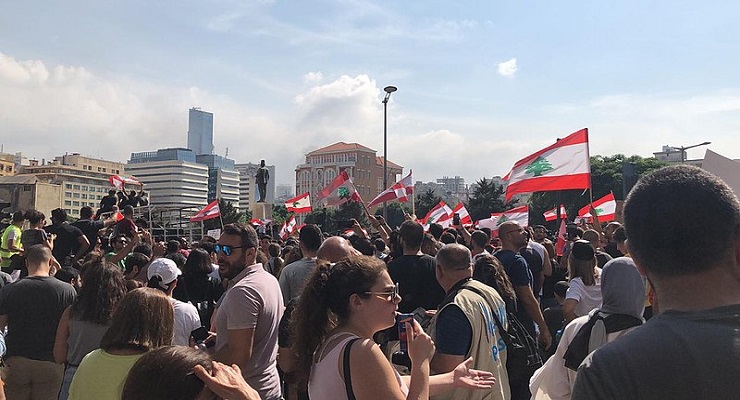
From Democracy Digest:
A new wave of protests and demonstrations has erupted across the Middle East and North Africa over the past 9 months, the Wilson Center’s Middle East Program observes. In Iraq, Lebanon, Sudan, Algeria, Jordan, and Egypt, these protests were largely triggered by dire socio-economic conditions, corruption and a sense of economic and political disenfranchisement with outright calls for regime change in the case of Algeria, Sudan, and very recently in Lebanon.
The new wave is focused on the same issues as the initial an Arab Spring, says Marwan Muasher, vice president for studies at Carnegie and author of The Second Arab Awakening and the Battle for Pluralism. But protesters have learned from their mistakes, and are seeking new goals and using new means to achieve real, lasting, regional changes. But what is different this time? And will those differences change the outcome? he asks:
-
- First, the primary characteristic common to all these protests is the trust gap. In previous protests, including the Arab Spring, people pushed the regime in power to make structural changes to satisfy their demands. Failing that, protesters often turned to opposition leaders to see if they were able to achieve results. But in this wave, the lack of trust in all political leaders has reached the point of no return. ….
- Second, the protests are peaceful, despite the strength of the regimes they face, and those regimes’ willingness to swiftly deploy violence against protesters. In Algeria and Sudan in particular, the military has used brutal and repressive tactics for decades, but the protesters so far have refused to adopt violence in any way. Through their pacifism, the protesters have been able to achieve and maintain broad internal and external support, and the military in both countries was finally forced to listen.
- Third, the protesters are rejecting sectarian divisions in politics that virtually guarantee antidemocratic rule. In Lebanon, deeply entrenched sectarian political systems, where religious or ethnic identity is the basis of politics, create divisive and bitter conditions that erode the national cohesion necessary for democratic reforms {as discussed in the NED’s Journal of Democracy, right]. Unpredictably, Lebanese protesters have adopted not only a peaceful, nonviolent strategy but also a decidedly nonsectarian message for the first time.
Read full article here.
Leave a Reply